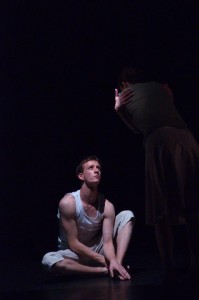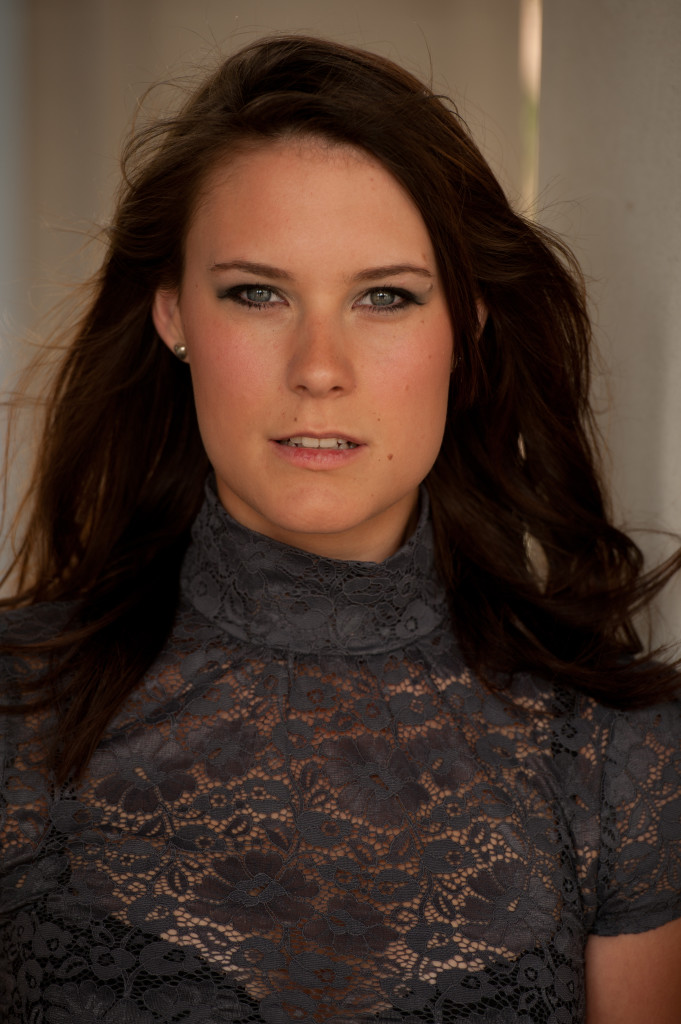3. What is the hardest part about dance for you?
Student Spotlight: Rachel Burn
Today for our student spotlight, please welcome Rachel Burn…
1. Can you tell readers how you became involved with dance?My mother was a dance teacher and so my sister and I grew up going to ballet, acro and jazz when we were little. As a teenager, though, I began to love it for myself and a friend who had previously done a dance degree gently nudged me that way, which I’m always very grateful for!
2. What do you find you like best about dance class?
I’m not sure there’s a best thing! Class is simply the most amazing thing/place for a dancer… I prefer it to performing some times! It is a unique and significant experience to be amongst a group of like-minded ‘Body Thinkers’, all sharing the same space, music etc, and whilst sharing that space also being alone to work just for yourself. What other opportunity do we get to pay attention to the very internal state of our bodies? Humans have bodies, not just brains, and a huge majority of the world don’t ever connect themselves to their bodies in an intentional way, I think they don’t really know themselves as a result, to set that time aside daily is the same thing as a faith/spiritual practice. I could go on and on…!
Physically I like the opportunity that class gives to teach your body new things, work hard, get tired, get sweaty, to develop the fullness of your fitness – agility and clarity alongside stamina and strength etc – and that very primitive joy that comes from flailing everything around to loud music! J I don’t understand why more people don’t love that.

In terms of being a freelance professional dancer, my experience has been that class is where you meet your network. Most of my work and projects and the dancers who I am currently working with have come from just meeting people in class and getting chatting. Contemporary dance doesn’t have a simple and clear system put on us to develop ourselves professionally so making your own network is important – it then joins up to other networks, other dancers, other projects…
3. What is the hardest part about dance for you?
This is a very difficult question… the answer is rather more about my insecurities than about dance itself. I personally at times can find it hard to be working in an industry that many of my peers and family don’t understand. They support it, endlessly in fact, but maybe also think I’m a bit odd or missing the point. But that might just be my paranoia! I don’t mind that I also have to waitress, or that I am usually broke or that a lot of my friends are married with mortgages and children – some people let those things push them out of dance.
4. What advice would you give to other dancers?
I would say to just keep going… there is absolutely not a direct and straight career ladder to climb. If you get a great project for a while and everyone thinks that this is it for you, you’ll always earn money now and travel the world on huge stages, you need to know that that is absolutely not necessarily the truth and a week after that contract ends you might be dancing at a kids party, but THAT’S OK. You need to do what you need to do to keep going. Be wise in your choices and look after yourself physically and spiritually, it really is a tough world to be in and you need to be in a good state to deal with it. Keep doing class.
5. How has dance changed your life?
I took a three-year break from dance and if I hadn’t gone back to it I would be a secondary school teaching assistant in my home town living a comfortable and timetabled life… Gary Clarke was a Butlins Red Coat and Natasha Kahn (Bat for Lashes) was a teacher in a primary school – so I feel in good company – we all need some thinking time, but at some point you have to answer the niggle in you to do what you need to do. My prompt came from watching Matthew Bourne’s Swan Lake for the millionth time one Christmas and thinking ‘What am I doing?? Why aren’t I dancing? I need to re-train’ and it’s been forwards from there. I have less money and less stability than ever before but far more assurance in myself, understanding of and energy for life, and I know that I’m doing the thing that I need to do. I think that’s important.
BIO: Rachel trained at Middlesex University, graduating with a BA Honours in Dance Studies with a particular focus on choreography, followed by completing a year of further training at the Merce Cunningham Studios in New York and performing with the Repertory Understudy Group. She has choreographed for Cloud Dance, Actual Size, Middlesex University students, Switchback Productions and currently a variety of her own projects, including Pullover, Pull Through, Flick, performed at Woking Dance Festival and for the Surrey Dance Collective. She has also worked with H2 Dance, Laila Diallo, Douglas Dunn, Shobana Jeyasingh and Gary Clarke.
Student Spotlight: Morgan Forth
Featuring in today’s Student Spotlight is dancer Morgan Forth, recent graduate from Middlesex University.

1. Can you tell readers how you became involved with dance?
Coming from a secondary school where dance was a part of the curriculum, it started off as merely another subject. My true passion for dance came when I was 14 when (dragged by friend) I joined a new boys’ dance group called Alpha Dance. Their first project was the opening ceremony of the Olympics in which they saw an opportunity to get ‘boys into dance’. During this I found a whole new sense of accomplishment and I began to fall in love being able to perform and not quiver to the background as I was used to. I began to feel at home in dance.
2. What do you find you like best about dance class?
Getting lost in the movement has always been my favourite part of class. Not so much that you forget what you are meant to be doing, but just enough that your emotions start to spiral in and develop into a phrase. Becoming one with the movement is genuinely exhilarating.
3. What is the hardest part about dance for you?
The hardest part will always be the little demons that tell me I’m not good enough to be doing this. Suffering from low self-esteem has always been a great obstacle and often damages my belief to progress. It doesn’t normally help when you’re constantly surrounded by others that seem to be able to continue to push and achieve at a higher rate, but you then remember why you love it and things start figuring themselves out again!
4. What advice would you give to other dancers?
One thing is to never let other people dishearten you. You need to always remember why you dance. As soon as that is clear then nothing else will matter because you will know in your core that what you are doing is the right thing. Dance at its base is a freedom of expression, but in order to have this freedom you must have discipline. That is not to say you can’t be immature: some of the greatest pieces came from messing about! But in order to push the boundaries you need to know what the boundaries are.

5. How has dance changed your life?
Dance has given me a sense of purpose, it turned me from an extremely quiet and shy nobody to a quiet and shy person that can perform to hundreds of people and not be scared. It brought me great friends and mentors, people I hope never to lose contact with. It has taken me on tour to the Fringe festival and through playful workshops lead. It constantly reminds me that I can be more and do more, and that if you fall over just do it with style and carry on…no one needs to know.
BIO: Morgan Forth graduated from Middlesex University with First class honours after completing both GCSE and A Level dance at North Leamington School and Arts College. He joined Alpha Dance youth dance company in 2003 and took part in various productions across Coventry and Warwickshire until 2008. Throughout university Morgan had the chance to collaborate with Masters students in their choreographic work and also understudied both male parts in Bertram Ross’ Nocturne. He is currently a company dancer and Administrator with KindredDance, performing at Sifdans festival, at artsdepot London and for eleven.org. In addition to this, he is also a company dancer with Avoidance, touring London and to the Edinburgh Fringe Festival in 2012. Morgan is currently beginning to pursue research into the progression of modern dance and the internalising use of breath for the body.
Some Thoughts On Dance Writing…
by Jessica Wilson

Being invited back to university to co-present a lecture on Dance Writing was an honour indeed, particularly because I am hugely passionate about writing, and the institution itself. Whilst preparing my material, such as my journey into and through dance writing, writing whilst at university and then in addition to my role at the Royal Academy of Dance, some points struck me as particularly useful for the undergraduate, which I had not consciously registered, previously.
It became clear, as I considered what would be useful for the third year students at Middlesex University to hear, that it was important to sell your skills as best you can when pitching for dance writing. Opportunities do not always knock, so I advocated the importance of both seeking out and creating your own opportunities rather than waiting for them to emerge. In this sense I felt it was important to offer your writing skills at every possible moment by getting involved with work experience or new dance projects, enabling the art of networking to evolve and increase. However, I also considered that it was not wise to rely on networking for opportunities, or even work: confidence to push yourself and your skills forward is key to writing success.
Something which comes with experience was the act of adapting to many different people and their requirements, being flexible and reliable as a writer to deliver work on time. Different editors of different publications and websites require different lengths of copy, for different target audiences, on different topics and issues, and so on. I felt it was important to relay to the students that in those early writing days, it is paramount that you do not become lazy as a writer and assume that one method works for all. This is, I believe, parallel to the fact that the same covering letter cannot be used for all job applications for example, which is, essentially, what pitching is.
I feel the most important part of dance writing is keeping up-to-date and informed about the dance sector and its ‘goings-on’, in order to retain the passion for dance as a whole, be your interest in technique, performance, academia, and more! To be able to provide context for your work and where it sits in the dance sector demonstrates interest, insight and a reasoned approach, being able to appreciate and respond to the many strands which make up the sector, with the knowledge to do so effectively and accurately. This will mean that you are constantly learning and informing your opinions, especially if you are able to regularly see new dance work, experiencing the sector first hand and ultimately expanding your knowledge.





